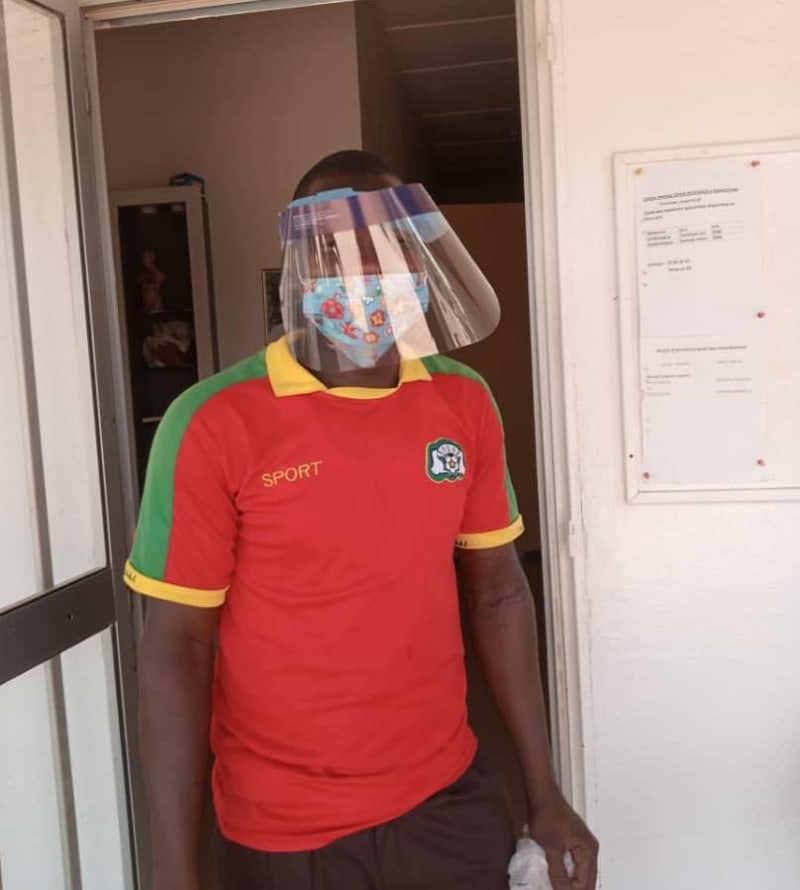
Health Corona hours - A Time for Learning!
In our village Nakamtenga, as everywhere on earth, measures are taken to meet Corona, or rather avoid Corona. It is important that we do not expose those who are at risk. I feel immense gratitude for the huge capacity of action and the efforts to quickly change our life patterns, which the world has shown instantly! What lessons can we draw and how do we use this power to address all the big issues that will create a better world – and obviously in no time if we all do it together?
The government in Burkina Faso, as in many other countries, closed all schools for at least two weeks ahead, and instructions on how to greet each other, avoid crowds, wash hands, etc. are many.
Despite what many experts feared, it was not the great cooperation between China and Africa that brought corona to Africa, which now starts having its first deaths – the cases that have been found have all come via Europe. There is still a relatively low number of confirmed infected. So we hold our breath. This can of course also be due to the lack of tests to confirm infection and other logistical issues. This week we had the first death in Ouagadougou, and it was Ms Rose Marie Compaore, who was our first Deputy President of Parliament, who got infected from Italy.
What is interesting about Corona is how quickly the world came together to meet a common threat. How quickly it was possible to rectify things that have been discussed by the world's leaders forever, arguing that a changeover takes over 20 years ... or more!
The financial losses are enormous and both individuals and companies are hit hard. At the same time the environmental and social consequences have quite many positive sides. I hope that when we slowly will be able to return to our ordinary lives, that every company and person has an extra thought, for each step they intend to restart: Does this lead us closer to the Global Goals? Is there any other way to do this, that is better for people and the environment; and the world? What about all the short flights to a few-hours meeting in London or Berlin? What technology can we use to avoid wasting our resources? Maybe is it high time to seriously support local producers and sustainable solutions?
So in short, from Yennenga Progress's point of view, here is what I am thinking:
– The world will continue to suffer from pandemics, natural disasters and conflicts.
– To create resilience to this, we need to support the building of stable societies that make it easier for the population to survive even during periods when they are cut off from the rest of the world.
– We need decentralization where smaller, delimited communities are supported to build their own infrastructure where they can locally secure access to clean water, sustainable energy, and food production, but also the structure for education and health, so that society does not stop if any kind of chock.
– (This is NOT about being isolated islands, on the contrary, the more interaction between the communities the better, with trade and knowledge exchanges etc, BUT basic functions must work so that the individual communities do not become dependent on others for their survival. Dependence decreases the possibility of negotiation, creates conflict of interest, corruption, feeling of hopelessness, etc.)
– Every society needs to organize a local welfare which is democratic, equal and with functioning rule of law. This requires that each state also organizes and supports these decentralized societies.
We have come a long way in Nakamtenga, which is why we are now developing The Yennenga Program, an educational platform (e-learning that is gamified to create easy accessibility with a mentoring program), so that other villages and communities can sign up for our social franchise which guides and supports them to create their own welfare societies in micro-format, which will raise the standard of living for their population, but also create resilience to Corona, other pandemics, natural disasters, extremism and violence.
If you want to know more about The Yennenga Program and how you can help create a safer world for all of us, please contact us to the following emails:
– Me, Stina Berge, at stina@yennengaprogress.se,
– or Frida Monsén, for the platform, at frida@insertcoin.se,
– or Dan Lindgren, who leads the steering group, at dan.lindgren@wewerethe.re.
Take care of yourself, your fellow humans, and the world!
Love Stina